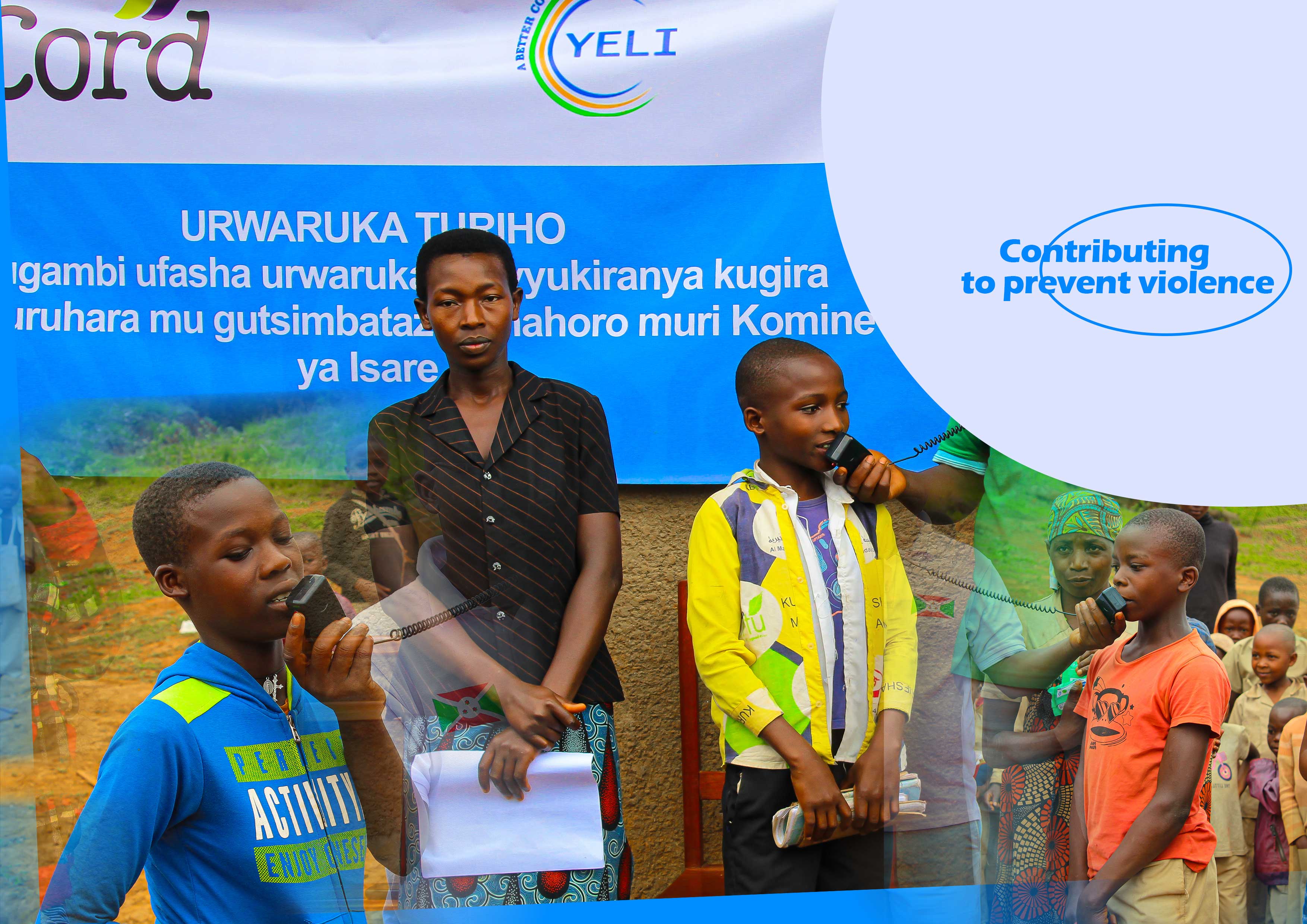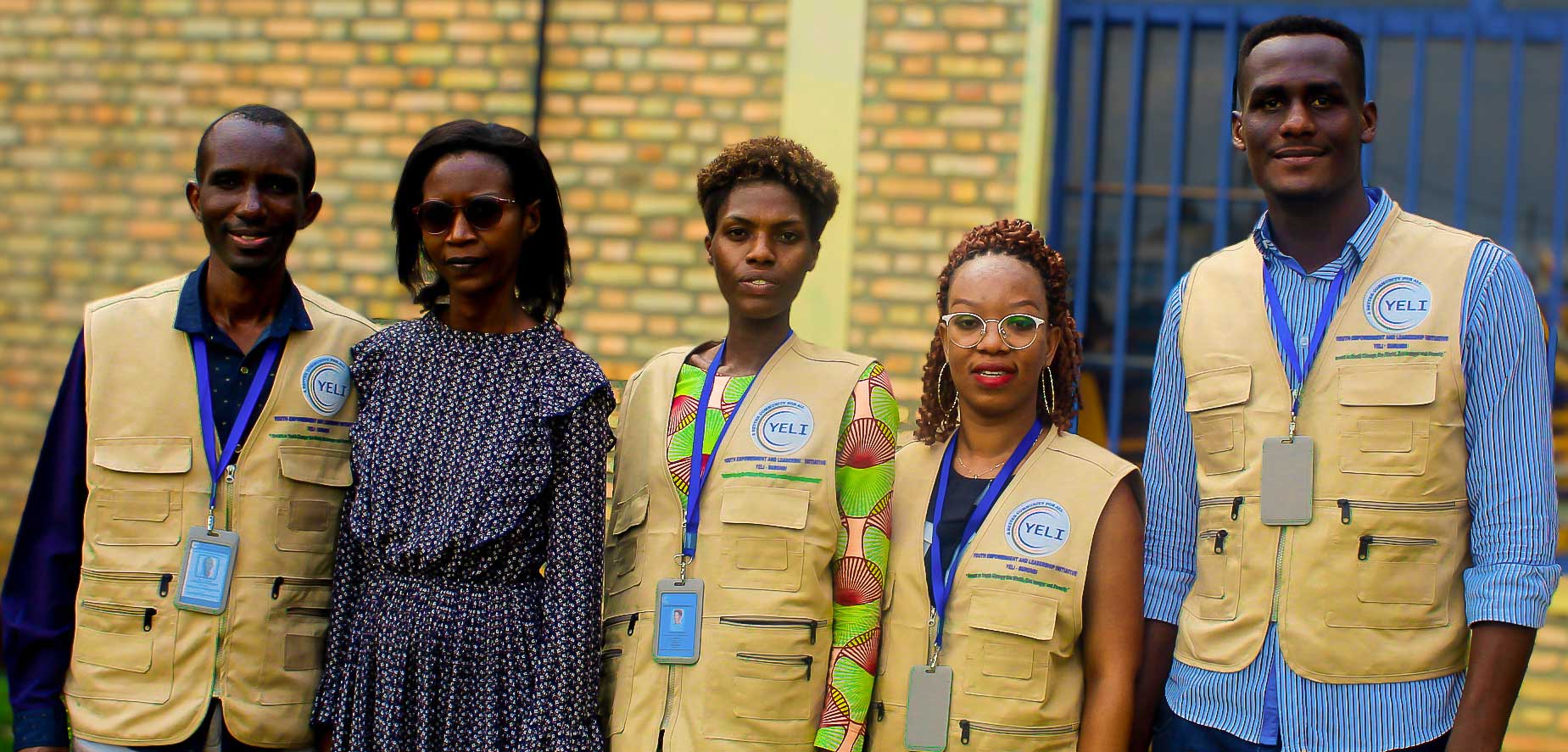
young people in Isare are contributing to prevent violence as we are nearing elections in 2025.
07 April 202521k Views

The Author: This story is written by Nkurunziza Raphael, a young peacebuilder from Burundi, working for the Youth Empowerment and Leadership Initiative (YELI), former Regional Coordinator at UNOY Peacebuilders in East and Southern Africa, chair of the African Youth Advocacy Team (A-YAT).

Recently here in Burundi, on February 25th 2023, beautiful images were seen in different provinces where crowds of people, whose majority were youth, in uniforms with the colours of the flag of the country, white colour dominant, went down in the streets. They had papers in hand containing writings that celebrate the actions of his Excellency the President of the Republic of Burundi. The crowds were very dense in Bujumbura. The celebrations were also meant to congratulate the President of Burundi, Evariste Ndayishimiye, named friend of youth, for being appointed as the African Union Champion for the Youth, Peace and Security Agenda, a title conferred in Addis Ababa, at the same conference which endorsed the decision to hold the Annual Continental Dialogue of African youth in Bujumbura in the near future.
25th of February 2023, Bujumbura The country of Burundi, or the land of drums, the country where I was born and raised, is one of the most youthful countries in the world. Since its independence in 1962, the country experienced several conflicts in which youth have been victimised in big numbers.
In 2015, during the demonstrations against the third term of the former President, I was a member of the Committee of Peace and Mediation placed at Bujumbura and helped to reduce tensions, with the support of the Training Center for the development of Ex-Combatants (CEDAC) and the Action on Armed Violence (AOAV). The tension between the two sides did not only make young people suffer psychologically and economically, but a number of them lost their lives.
Things evolved differently from that period. At the global level, we all know that the United Nations Security Council Resolution 2250 (UNSCR2250) was unanimously adopted and urged Member States to increase representation of Youth in decision-making at all levels. This has been a pillar for the creation of the organisation that I work for, “the Youth Empowerment and Leadership Initiative (YELI),” a non-profit youth led-initiative that empowers young people on issues that affect their lives for a positive change, peace and prosperity in Burundi. It opened up space for us to advocate for young people’s needs and for me to operate as regional coordinator of UNOY Peacebuilders in East and Southern Africa and as a chair of the African Youth Advocacy Team. At the global level, I briefed the Security Council during the launch of the global report on protecting young people in civic space, “if I disappear”, and during the High-Level Global Conference on Youth-Inclusive Peace Processes.
At the continental level, I contributed to the methodological study on youth roles and contributions to peace in Africa, a study that led to the adoption of the Continental Framework on Youth, Peace and Security, a framework that reinforces the call for Action on Youth, Peace and Security in Africa, highlighting the role of youth in transforming the socio-economic, governance and security situation of Africans, among many others.
At the national level, with support from Cordaid’s global office and UNOY’s international Secretariat, I was able to coordinate a youth-led research project implemented by YELI in Burundi titled, ”Youth in the Peripheries,” to extend the evidence base on youth contributions to Peace and Security in the borderlands of the great lakes region, more precisely in Burundi – DR Congo and DR Congo and Uganda. The findings were gathered by young researchers, and went beyond the internationally recognised avenues of the implementation of the YPS agenda, such as the participation in decision-making and political processes. The research focused on the creation of formal and informal peacebuilding spaces by young people across the borderlands. It provided an opportunity to spend a couple of weeks with young people from these areas, with a number of challenges identified, the major one being the lack of knowledge about the YPS agenda. Another challenge that was highlighted is poverty, which seems to be common to Burundian young people and has called the attention of the government and its partners to promote initiatives that create jobs for youth.
Despite the existing challenges, I am particularly proud of a couple of things. Burundi has made progress in recognising the contributions of young people in peace, security, and development, and has put in place a number of programs to support young people. In many programs established by the government of Burundi, youth employment is a priority, which is also one of the tools for the operationalization of the Burundi National Development Plan 2018-2027. The programs include PAEEJ: Youth Economic Empowerment and Employment Program, and BIJE: the Investment Bank for Youth, among others. Recently, in April 2022, the Government of Burundi, in collaboration with the African Union Commission and with the support of the UNDP, organised a continental Dialogue on YPS in line with the Continental Framework on Youth, Peace and Security and its 10-year implementation plan. The dialogue led to the adoption of the Bujumbura declaration on Youth, peace and security, and additionally, the African Union’s recent nomination of the President of Burundi as the Champion of the Youth, Peace and Security agenda in Africa, who practically understands that youths play a very positive role aiding peacebuilding in communities disturbed by conflicts, and who also recently ratified the African youth Charter.
Implementing an agenda without a clear strategy will make young people turn around without a clear direction.
We therefore salute the The Ministry of East African Community Affairs, Youth, Sports and Culture who understood this and put in place a commission in charge of drafting a National Strategy on Youth, Peace and Security agenda and its action plan. We at YELI further salute the fact that a space has been open for us within the commission to be part of it.
With such a number of programs and policies adopted, without a strong advocacy for their implementation, the challenges will remain. A lot of energy is being put in to ensure the smooth continuation of the implementation of the YPS agenda, and to mitigate the challenges identified. In partnership with The Ministry of East African Community Affairs, Youth, Sports and Culture, the National Youth Council, UNESCO Burundi, and the American Friends Services Committee, YELI are jointly organising an event: Youth agency and promotion of the Youth, Peace and Security agenda in Burundi. An online form has been released, containing questions that will allow us to collect information from Burundian youth regarding the YPS agenda, as well as ideas from young people from across the countries, which we aim to compile in a strong policy brief, highlighting these ideas from young people from all the corners of each country.
Having said that, imagine how wonderful it could be if all of these programs and policies are implemented.
Firstly, there is a strong need to provide information to Burundian young people of what is happening around them, especially those in remote areas.
It is very important for all stakeholders working to promote the Youth, Peace and Security agenda to consider that recommendation. Secondly, there is a big necessity to connect Burundian young people to other young people operating at the continent level or/and the global level, to facilitate independent talking across generations on education (iTAGe). To ensure the movement does not leave anyone behind, the coalition will also allow its members and other Burundian young peacebuilders to connect to other coalitions at the continent level or/and at the global level. We call all the stakeholders involved to support the success of the work going forward.